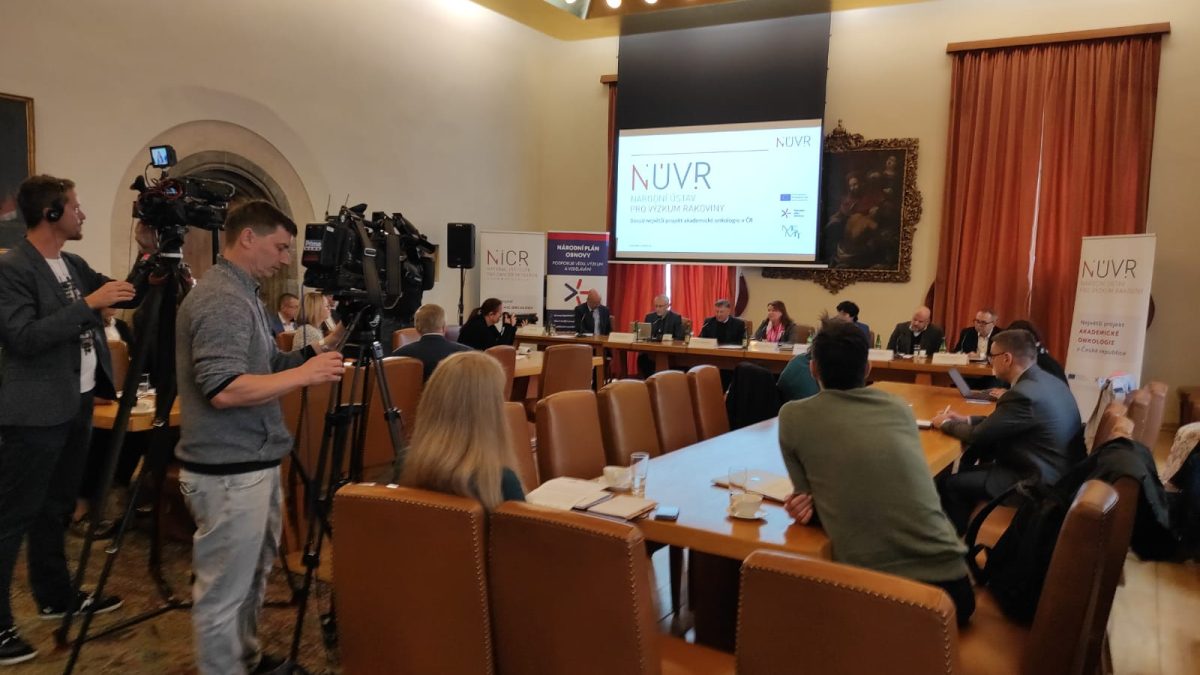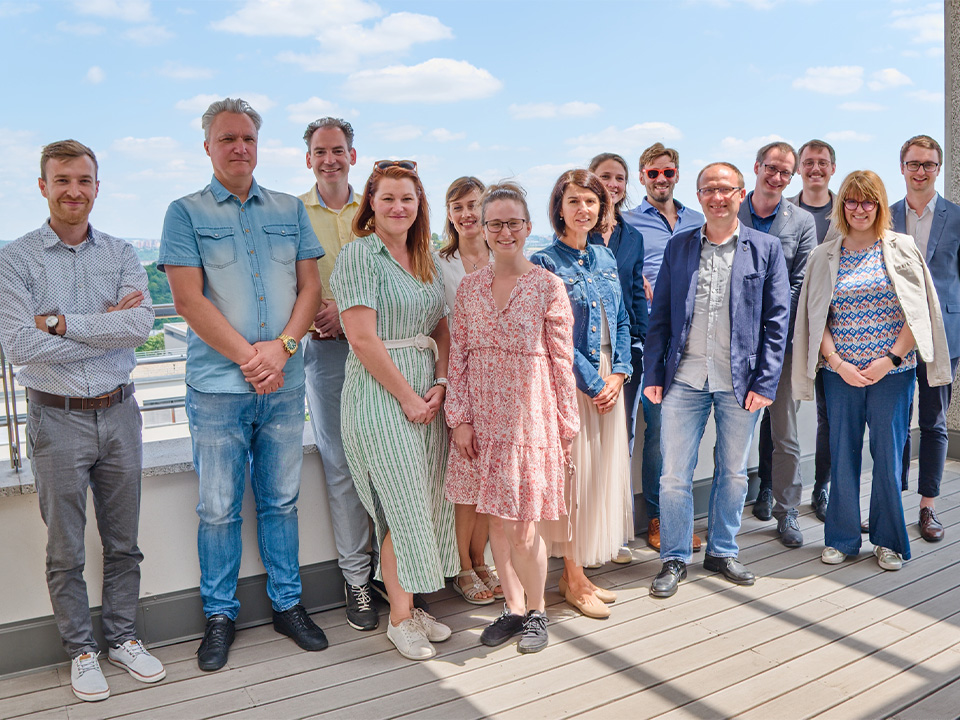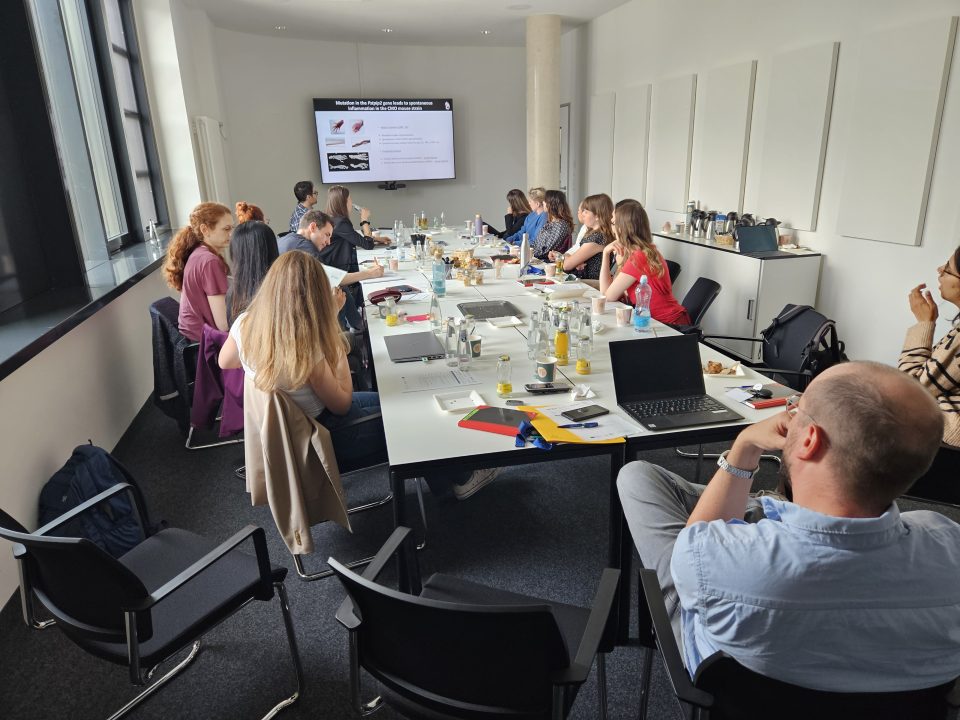Prague, 26 September 2022 – Goals of the newly established National Institute for Cancer Research (NICR) include improvements in the diagnostics and treatment of cancers, support for young researchers, and increase in public awareness of the importance of medical research. The NICR links 71 excellent research teams from 11 institutions in Prague, Olomouc, and Brno. The Institute is financed from EU funds by 1.4 billion EUR within the framework of the EXCELES programme of the Ministry of Education, Youth, and Sports of the Czech Republic.
In addition to producing academic publications, researchers also aim at delivering patents, certified methods, and expert recommendations. All this should result in important innovations in diagnostics and treatment of cancers. About one-third of the project’s budget is intended for development investment activities, including among others the creation of cleanrooms for the production of therapeutic products for gene therapy.
‘The NICR is the biggest project of Czech academic oncology. What is being built is a network of excellent institutions which can effectively collaborate and thus achieve better results. In a similar way, there exists in clinical oncology a nationwide network of comprehensive cancer centres which are linked by certain rules and mutual communication’, Aleksi Šedo, head of the NICR and Vice Dean of the First Faculty of Medicine of the Charles University explained on 26 September 2022 at a press conference organised by the Charles University.
He will lead the NICR tother with Marián Hajdúch of the Faculty of Medicine of Palacký University in Olomouc in the role of Medical Director and Ondřej Slabý of the Faculty of Medicine and Central European Institute of Technology (CEITEC) of the Masaryk University in Brno as a Scientific Director. The three directors agree that the chief ambition of the NICR is to transfer results from laboratories to physicians and patients. This is a process which the research teams involved in the participating institutions are engaged in already, but it is hoped that the establishment of NICR could further speed it up.
‘Research precedes any new treatment or diagnostic method for cancer, and we translate new findings from research laboratories into medical practice. Every day, our teams take a small step forward and they will never give up on their fight against this enemy. The NICR opens a way to better collaboration across medical fields and institutions’, says Hajdúch.
Five research programmes of the NICR cover the entire chain of innovation, i.e., the basic, applied, and translational research in oncology.
‘Under this label, we can imagine for instance search for new genes or pathways involved in the emergence and development of tumours. Identification of new molecular targets, diagnostic, prognostic, or predictive biomarkers. The development of new drugs and diagnostic methods, their transfer and clinical testing or testing of their applicability in practice’, adds Šedo. This is also why the NICR is open to collaboration with pharmaceutical or biotechnological companies or with comprehensive cancer centres and university hospitals.
The NICR will also be active in popularisation of biomedical research and its future strategic development. It is anticipated that eventually, the institute will include international teams or foreign specialists who would build their team within the institute’s framework. This will also present an opportunity for the incoming generation of scientists – for instance graduates of faculties of medicine, natural sciences, but also other fields.
‘Few people in the Czech Republic realise that money that goes into research already now has a direct positive impact on the health of all of us. We work in laboratories, but the results of our work do not stay there’, notes the scientific director Slabý.
‘Our goal is to connect outstanding scientific expertise, unique research infrastructure, and tertiary education to facilitate a strategic development of modern oncological research’, he adds.





